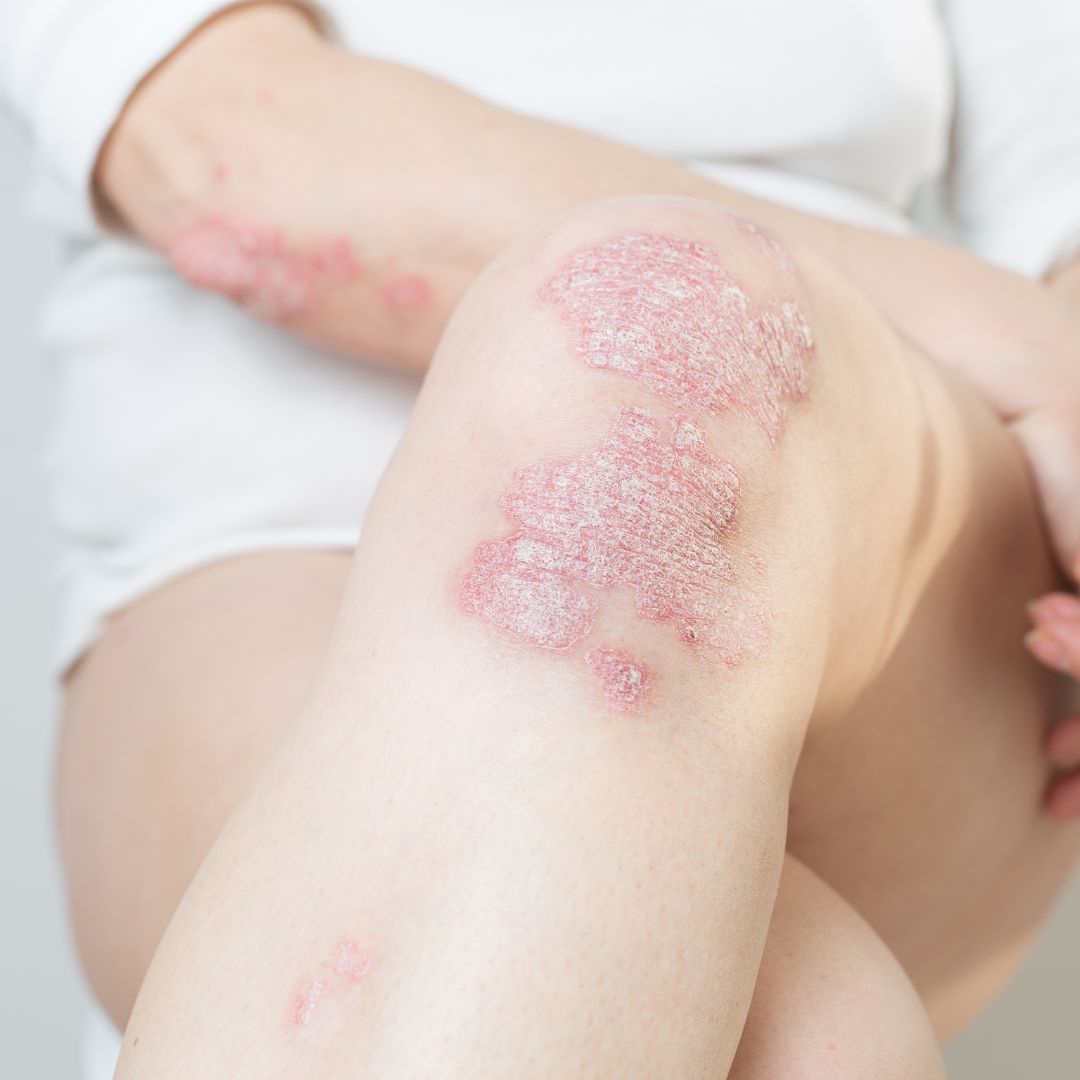By Dr. Peter Klapper Ph.D.
Plaque psoriasis, the most common type of psoriasis, affects 6.7 million adults (2 to 3 percent of the global population). With a condition so prevalent, you may be wondering, what is plaque psoriasis? Does plaque psoriasis itch? What does plaque psoriasis look like? For a firsthand account, consider reading Living with Plaque Psoriasis.
Typically, psoriasis is known for the characterization on the skin of red, raised patches with silvery-white scales, which are symptoms of plaque psoriasis. The plaques can be found on the hands, elbows, knees, scalp, and lower back. If you're experiencing scalp issues, our article on Scalp Psoriasis offers helpful tips.
The Role of The Immune System in Plaque Psoriasis
Our immune system is the body’s defense against harmful pathogens and quickly recognizes invaders. However, autoimmune disorders such as plaque psoriasis occur when the body mistakenly attacks healthy cells, leading to chronic inflammation among other symptoms.
In the case of plaque psoriasis, T cells become overly active, triggering an inflammatory response that accelerates the skin cell turnover process. This leads to the red, raised, scaly patches that occur on the skin. Understanding the triggers is essential; for more information, read Understanding Psoriasis: Symptoms, Triggers, and Treatment. It's also important to be aware of conditions like psoriatic arthritis that are linked to psoriasis.
A Genetic PredispositionLike other forms of psoriasis, the exact cause of plaque psoriasis is unknown. However, what researchers have unveiled is that certain genes increase the likelihood of developing the condition. If a family member has plaque psoriasis, your risk greatly increases.
Treatment Options
Unfortunately, there is not currently a cure for plaque psoriasis, but there are treatment options that can manage symptoms and improve quality oy life. Those treatments may include:
- Topical Treatments: These include corticosteroids, moisturizers and natural approaches such as our psoriasis treatment to provide relief during flare-ups.
- Phototherapy: A method that exposes the skin to controlled amounts of UVB light.
- Medications: Systemic medications that are prescribed by your doctor to treat your psoriasis.
- Biologic Drugs: A newer class of medications that target specific immune responses, effectively reducing inflammation and skin cell turnover.
To explore natural ways to manage symptoms, check out our Top 10 Homeopathic Ingredients for Psoriasis.
Changes In Your Lifestyle
While a treatment plan is imperative to follow, it’s also important to make changes in your lifestyle to manage plaque psoriasis.
- Lifestyle that should be considered are:
- Maintaining a healthy diet
- Avoiding triggers such as stress, injury, and smoking/alcohol use
- Being proactive in keeping the skin moisturized
- Avoiding sun exposure
By combining a sustainable treatment plan with lifestyle changes, it is possible to live a full life with plaque psoriasis.


